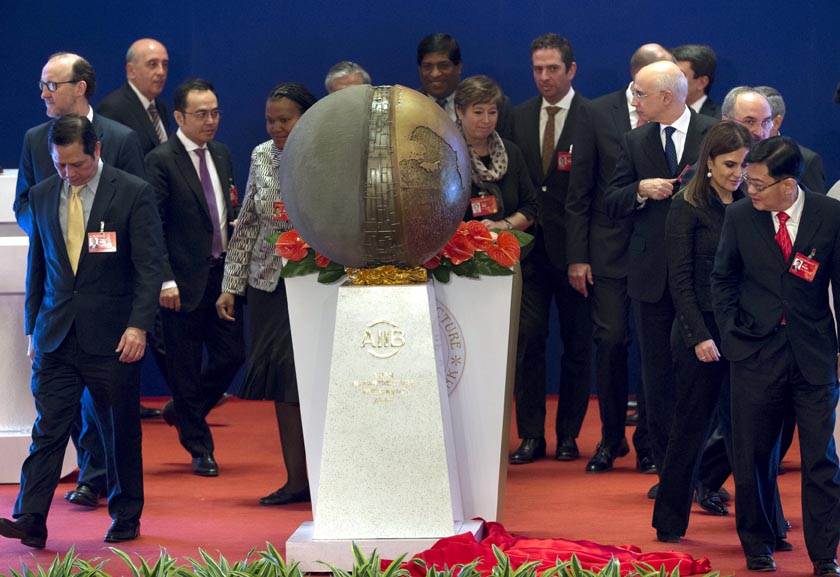Nepal elected to AIIB board of directors
- FinMin hails launch of the new international development bank as a timely and wise decision
Kathmandu, January 16
Nepal has been elected to the Asian Infrastructure Investment Bank (AIIB)’s board of directors. The ongoing meeting of the Bank in Beijing of China nominated Nepal as a member of the board today.
Altogether 11 countries — nine from Asia and two from outside the region — have been nominated as members of the Board, according to a statement issued by the Secretariat of Finance Minister Bishnu Prasad Paudel.
Minister Paudel hailed the launch of China-led AIIB as a timely and wise decision, because though Asia is rising as the leader of global economic growth, the level of infrastructure development in the region is unfairly low.
Minister Paudel was speaking during the opening ceremony and inaugural board of governors meeting of AIIB, in Beijing today.
“We are confident that AIIB will not only complement the existing multilateral development banks, but it will also inject the dedicated additional resources for infrastructure development in the region,” the finance minister said as per a copy of his speech received today.
Nepal was one of the original 22 signatory countries to the memorandum of understanding on establishing
the bank just over a year ago. On June 29, the Articles of Agreement was signed and it was unanimously ratified by Nepal’s Parliament on December 28.
Minister Paudel said that the establishment of the AIIB is a remarkable addition to the global financial system.
“I hope the AIIB will offer an innovative financing platform tailored to Asia’s infrastructure financing needs of today, and those of future generations. It will be a true multilateral development partner in contributing to broad-based economic and social development in Asia through sustainable infrastructure investment.”
He further said that Nepal, as a member of least developed countries, is looking for a better voice, representation, and participation in this new institution.
“We are aspiring for this great institution to be inclusive and considerate to the specific needs of LDCs. Nepal looks forward to meaningful cooperation in graduating from LDC status by 2022, and becoming a middle income country by 2030.”
Meanwhile, as per the copy of the speech delivered by Chinese President Xi Jinping at the launch, the bank would aim to invest in projects that were ‘of high-quality, low-cost’.
The AIIB is expected to lend $10 billion to $15 billion a year for the first five or six years and will start operations in the second quarter of 2016.
Even so, no specific infrastructure projects would be announced ‘for the time being’, AIIB President Jin Liqun told Reuters on the sidelines of the launch.
The AIIB will require projects to be legally transparent and protect social and environmental interests, but it will not force borrowers to adopt the kind of free-market practices favoured by the International Monetary Fund, Reuters had reported sources as saying in September.
Reuters also reported Baikuntha Aryal, joint secretary at Nepal’s Ministry of Finance, as saying that the Himalayan country was hoping the AIIB would fund roads, hydropower and urban development projects.
“The AIIB is specifically for infrastructure, so we see it as a supplement to projects in Nepal funded by the ADB (Asian Development Bank) and World Bank,” he said, as per the report.
China has an initial subscription of $29.78 billion in authorised capital stock in the AIIB, out of a total of $100 billion. It invested another $50 million today. The bank has three-layered structure of management. There is a board of governors, a board of directors and executive bodies.
AIIB is seen as a rival to the US-led World Bank, through which Beijing seeks to change the unwritten rules of global development finance.
Despite opposition from Washington, US allies including Australia, Britain, German, Italy, the Philippines and South Korea have agreed to join the AIIB in recognition of China’s growing economic clout.






